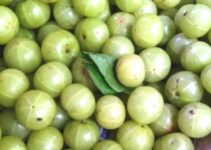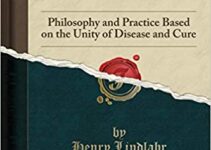What is fasting?
Fasting is much more than simply abstaining from food. It is an art and a science which influences the psychological and emotional levels of the human body. A fast is to abstain from food while one possesses adequate body reserves required to maintain normal functions of the body.
Is fasting good or bad for the body?
Fasting has a significant role in treating diseases, and it can reverse the diseased condition near normalcy. Fasting is the primary treatment modality to detoxify the body from toxins, which is the most important need to enhance the healing properties. Though the body has healing potential, unlike many animals in nature, such as dogs, it fasts until it regains its natural appetite. At any cost, it is not even attracted to its favourite foods. But, we humans, superior to animals with our discriminating faculty, do not justify the situation and act. In sickness, we feed the patient more as an act of courtesy, love, affection, hospitality, etc., which are unwanted to the body and mind. The body needs rest to divert its potential energy from doing the usual routine digestion & elimination to detoxifying & healing. Hence, it creates a lot of acute disorders & people do not still take care of their body reminders, indulge in suppressing acute illnesses & head towards chronic diseases.

How does fasting work for diseases?
The body needs to get rid of the toxic accumulation. The body needs to get rid of the poisonous collection. However, the body has its healing potential, and it does so by creating acute symptoms and diseases; an intelligent human being needs to help the body do so by natural remedies or fasting. However, the body has its healing potential, and it does so by creating acute symptoms and diseases; an intelligent human being needs to help the body to do so with natural remedies; acute diseases are the biological signals of the body and mind to hint the person to find the causative factors of his suffering and try to correct. Acute diseases are the natural signals of the body and mind to indicate that the person should find the causative factors of their suffering and try to fix them.
Difference between fasting and starvation
Fasting should always be distinguished from starvation with the help of symptoms produced by the body at the ripening stage. Starvation is abstaining from food after one’s reserve food stores are completely exhausted. The human body is in a position, a regulating mechanism, to survive from complete abstinence from food for many weeks without damaging one’s health. Soon after the bodily stored food materials are completed, fasting enters the ripening stage, and the body exhibits signs and symptoms indicating the necessity of breaking fast. In case the fast is continued but for some reason, the food reserves exhaust and the body cannot draw the energies from food reserves and starts decaying. This stage is called starvation.
A scientific explanation of fasting
It is the most critical aspect of Diet therapy. Naturopathy believes that all diseases arise from toxins, and toxins accumulate in the body and the digestive organs; it is essential to clean them by diverting the energies of the body. It is necessary in almost all diseases. It also cleanses the body and muscles. It helps in strengthening and relaxing the mind. Thus, there is clarity in every work. One does. There is clarity in every piece. One must remember that eating in diseases does not supply nutrition to the body but only feeds the disease. During fasting, though the stores are used, there will be a need for electrolytes, which are not supplied through or do not exist in the body stores. Hence, juices, honey water, tender coconut water, etc., are the substitutes for the electrolytes & also enhance the fat utilisation in the body. Otherwise, the lean muscle is lost, which is not a good sign for the body’s healing properties. In cases where walking or exercises are possible to some minimum extent, the fat (stored energy) is burnt out & is utilised & some is converted into lean body mass along with vegetable juices and fruits. So, during fasting, the body composition has to be taken care of; in diabetes, care for keta acidosis, care for hypotensives & hypoglycemic, etc., are needed.
What shouldn’t you do during fasting?
Fasting is recommended under proper guidance & doctor’s supervision. It needs four types of rest: physical, mental, physiological & sensory rest. Hence, during fasting, patients should not be involved in strenuous mental activities like business or official work & should be free from worries. Only tolerable physical activity in the form of treatments, exercises, and yogasanas is permitted. During fasting, travelling, excess talking, watching TV, etc., is to be avoided So that there is sensory rest to the body. Patients should not be involved in talking or gossiping about food or should stay in and around an atmosphere where there is too much sensory & physiological stimulation due to the smell/sight of different varieties of eats & drinks.
Fasting types
Cellular digestion and excretion are the essence of good health. Each cell in the body does its activity. When cells get choked by toxins, termed “Cellular Constipation”, it gives rise to diseases. Hence, fasting is essential for dealing with acute and chronic conditions. There are three types of fasting: dry fasting, water fasting and fasting on dilute fruit juices.
- Dry fasting is not much advised for therapeutic purposes.
- Water fasting depends on the endurance capacity of the individual.
- Fasting with diluted fruit juices/ tendered coconut water/ honey water, lemon water/ vegetables 3-4 times a day, etc., is most preferred.
- Apart from this, 2-3 litres of plain water has to be consumed. The duration of fasting may range from three to ten days. In prolonged fasting, one can go up to 30 to 40 days, depending upon the individual capacity & stores. In health, fasting can occur one day a week to prevent diseases.
Fasting treatments for diseases
In fasting, the body and mind throw out toxins from each & every cell, organ, gland, and excretory organ – skin, kidneys, colon, and lungs, to facilitate the eliminatory process, specific treatments like enema, – plain, saline water, neem water (margosa leaves boiled water) – acts as an antiseptic, tone enemas – honey, wheatgrass etc. are advised. It is essential to give an enema; here, the eliminated toxins get reabsorbed, as the faecal matter lacks consistency due to the lack of a roughage diet or any diet. It can also lead to undue symptoms, which may lead to a disease crisis instead of a healing crisis due to low vitality of body and mind. Another cleansing technique is colon hydrotherapy, which cleanses the entire colon & during the process, there is a detoxifying of other organs, especially the digestive organs like the liver, gall bladder, pancreas, small intestine, etc. In Yogic kriyas – Vaman Dhouti, it has been proven to be highly beneficial to cleanse the upper G.I.T. so that the acid precipitation due to habitual acidic formation and some stimulation may occur from sensory and mental areas. Specific relaxation techniques, pranayama, asanas, etc., can also be practised to control the inspiration of the mind. A hydrotherapy treatment like Hipbath, abdominal packs, gives a soothing effect to the G.I.T., which helps in the elimination process: mud therapy – loads applied to the abdomen help improve circulation, increasing the peristalsis.
A healing crisis occurs during fasting to aid the recovery of diarrhoea, catarrh, cold, fever, boils, skin rashes (eruptions), etc. There may be feelings of excessive gas elimination, cottonmouth (unpleasant bitter, sticky taste of mouth), nausea, vomiting, weakness, and sleeplessness, which are again treated according to the individual symptoms, e.g. in the case of diarrhoea, cold enema is suggested.
When to breakfast?
The ideal time to break the fast:-
- a) Hunger returns
- b) The tongue coating clears up & becomes pink in colour. (this is its natural colour)
- c) Breath becomes odourless, and there is a clean taste in the mouth
- d) Pulse becomes normal
- e) Temperature becomes normal
- f) Urine becomes odourless
- g) Eyes become clear
- h) Respiratory rate becomes normal
How do you feel about breakfast?
Fasting is easy & breaking the fast is difficult; it needs much willpower. The safest way to break the fast is with fresh fruit juices / juicy fruits, lasting 3-4 hours. There needs to be a slow change over the regular food, depending upon the days of fasting. For example, if a person has fasted for 5-6 days to return to a regular diet, it may take a minimum of 3-5 days. It isn’t necessary to give immediate feasting after fasting; fasting can be carried out after feasting, but it is always better to reduce the caloric intake a few days before fasting so that the appetite shrinks & facilitates the fasting.
Do you know when fasting is not advised?
Fasting is not advised in severe weakness, old age and pregnancy, and feeble and fatigued persons. In cases of epilepsy, T.B., painful ulcers, malnutrition and deficiency disorders, it is not advised. It is also avoided in states of mental disturbances, like severe depression / neurotic depression and severe anxiety neurosis.
Fasting can be done for acute diseases like fevers, colds, diarrhoea, dysentery, headache, vomiting, abdominal / stomach pain etc. As such, more appetite will be needed in these conditions. Fasting can continue until the acute phase is over, and slowly break the fast & regain a regular diet. In chronic diseases, there is no total impairment in digestion like in critical conditions. So, there is no need to extend the fasting till symptoms disappear since they are long-standing. However, during a healing crisis, fasting should continue till symptoms disappear. Chronic diseases like asthma, arthritis, osteo & Rheumatoid, gout, hypercholesterolemia, migraine, hypertension, spondylitis, hypothyroidism, indigestion, obesity, etc., are benefited directly or indirectly. So, fasting is a wonderful healer and health restorer, a panacea for all bodily evils. Properly conducted fasting can unravel the body’s inherent healing potentialities & cure diseases.






